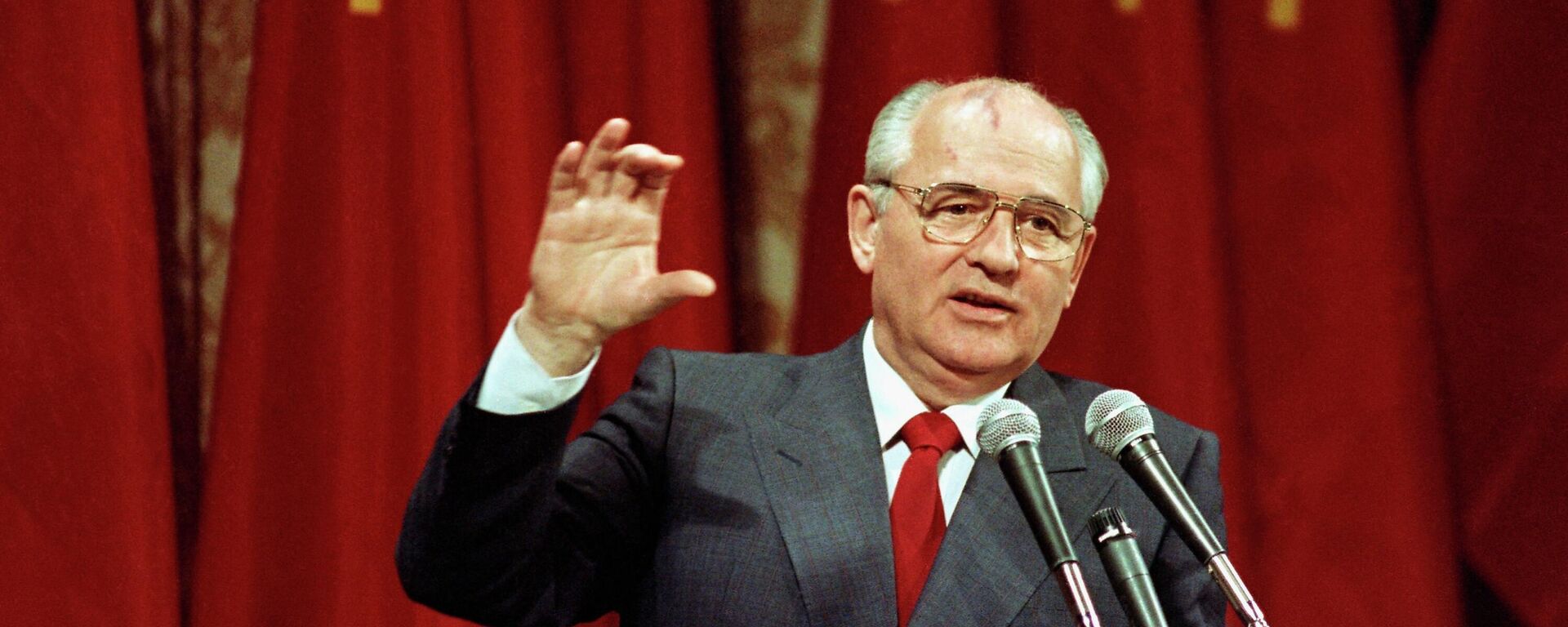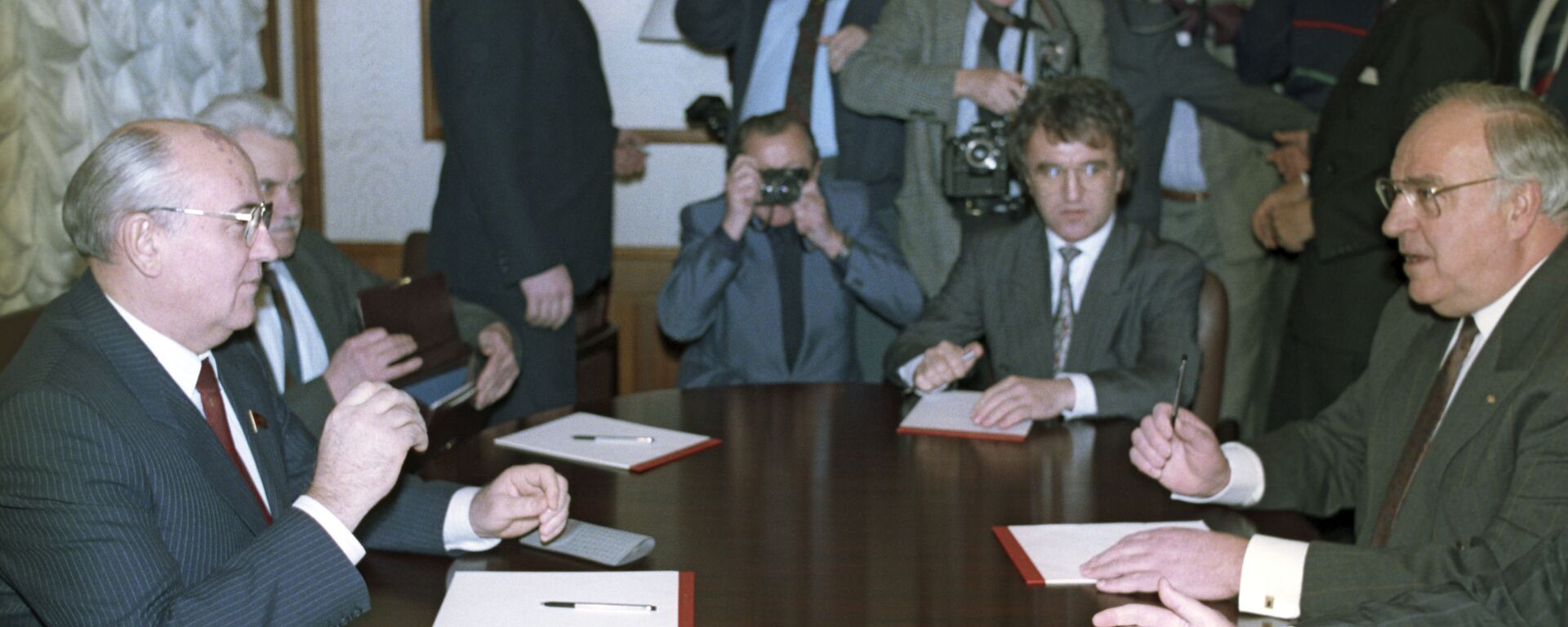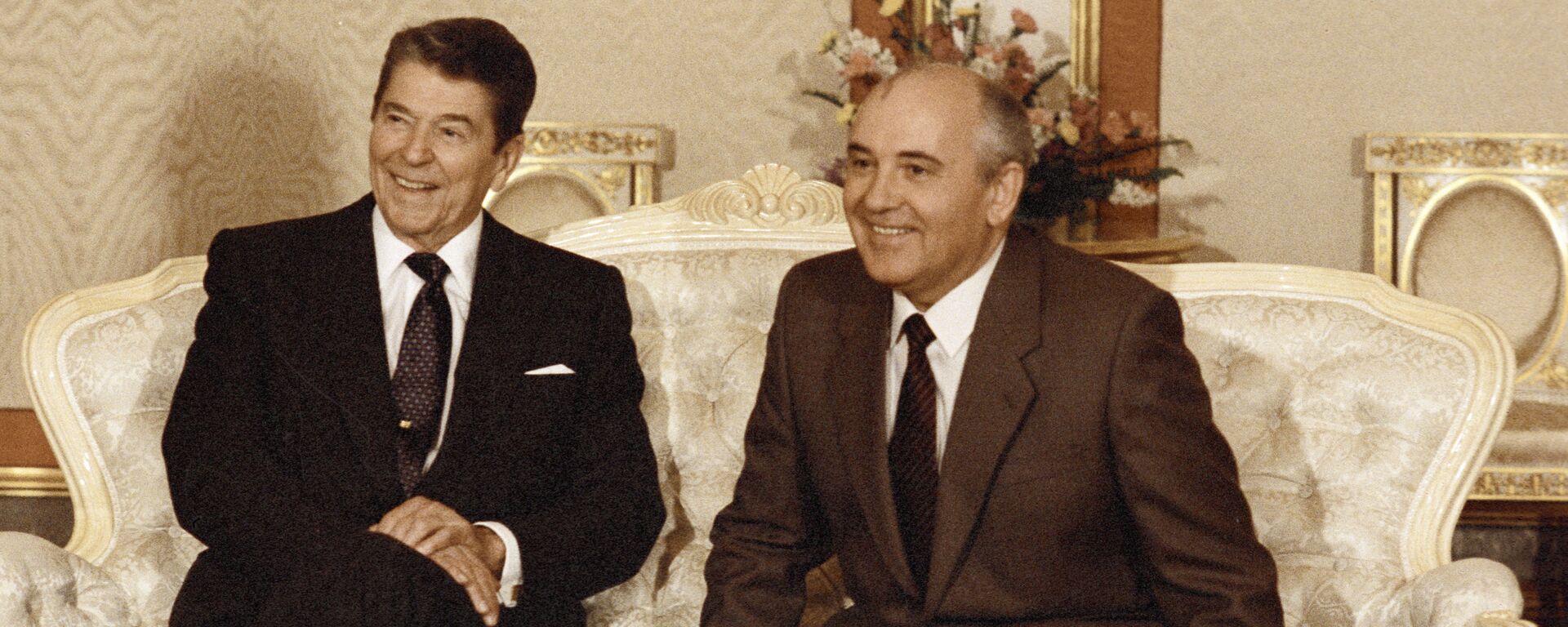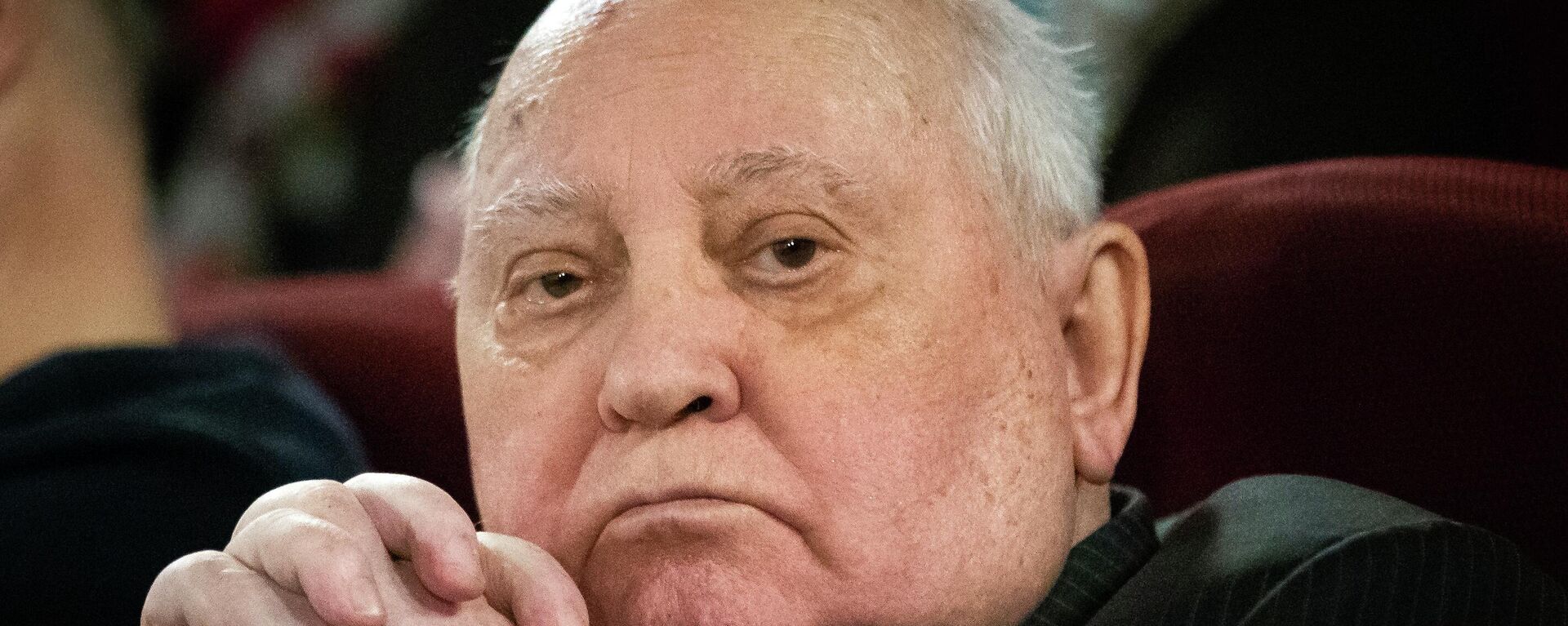Beacon of Hope or Hopeless Dreamer? Mikhail Gorbachev’s Contentious Legacy
18:01 GMT 31.08.2022 (Updated: 19:17 GMT 01.09.2022)
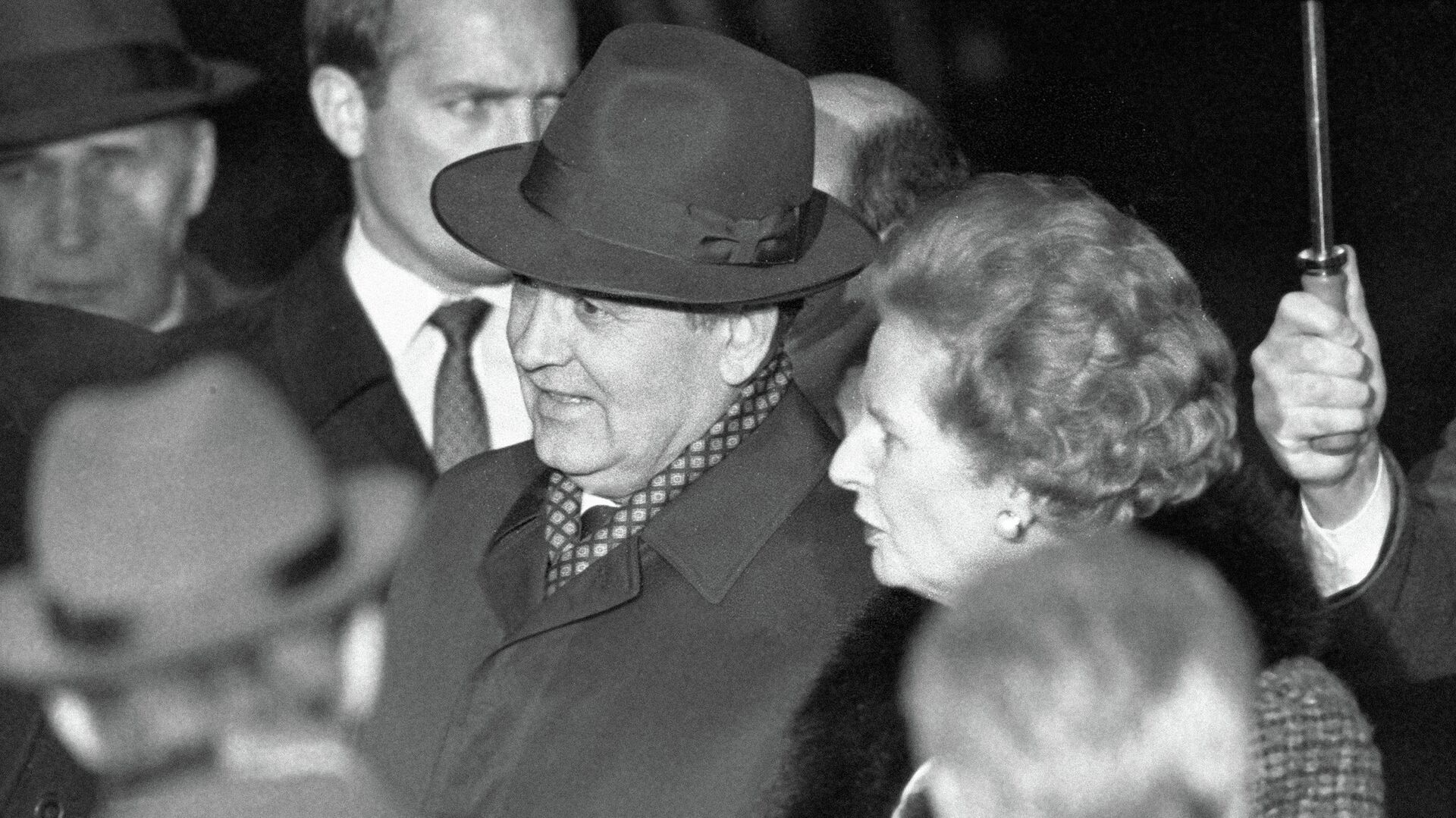
© Sputnik / Alexander Makarov
/ Subscribe
Exclusive
Mikhail Gorbachev passed away Tuesday at the age of 91. Praised by some as a global visionary for his effort to end the Cold War and increase international cooperation on issues like climate change, the Soviet leader has taken criticism from others for the failure of his economic and political reforms, and for selling his country out to the West.
A flood of tributes has poured in from leaders from across the world for Mikhail Gorbachev, with his passing momentarily uniting disparate and even antagonistic nations and geopolitical blocs in an outpouring of sympathy for a man best remembered for his efforts to reduce East-West tensions.
Russian President Vladimir Putin sent his “deep condolences” to Gorbachev’s family, and called the ex- Soviet leader a “politician and statesman who had a huge impact on the course of world history.” US President Joe Biden characterized Gorbachev as “a man of remarkable vision” who had the “courage to admit that things needed to change.” European Commission President Ursula Von Der Leyen described him as a leader who “opened the way to a free Europe,” while United Nations Secretary-General Antonio Guterres said that Gorbachev “did more than any other individual” to end the Cold War.
Gorbachev came to power in March of 1985 after the back-to-back-to-back deaths of three elderly Soviet general secretaries in less than three years, becoming the leader of the world’s second military, economic, and technological superpower. Less than seven years later, in December 1991, the country which Russian czars and successive Soviet leaders forged over three centuries ceased to exist, disintegrating into 15 republics and plunging a sixth of the world’s land mass into an unprecedented social and economic crisis.
“Gorbachev’s role is highly controversial,” Dmitry Suslov, deputy director of the center for European and international studies at Russia’s Higher School of Economics, said in an interview.
“This is a great historical figure and, like any historical figure, had both achievements and miscalculations. Firstly, of course, Gorbachev is remembered both in Russia and abroad for his intentions, his good intentions. He was one of the greatest, and perhaps the greatest, idealist politician of the 20th century,” the academic, who also serves as deputy director of research at the Russian Council on Foreign and Defense Policy, explained.
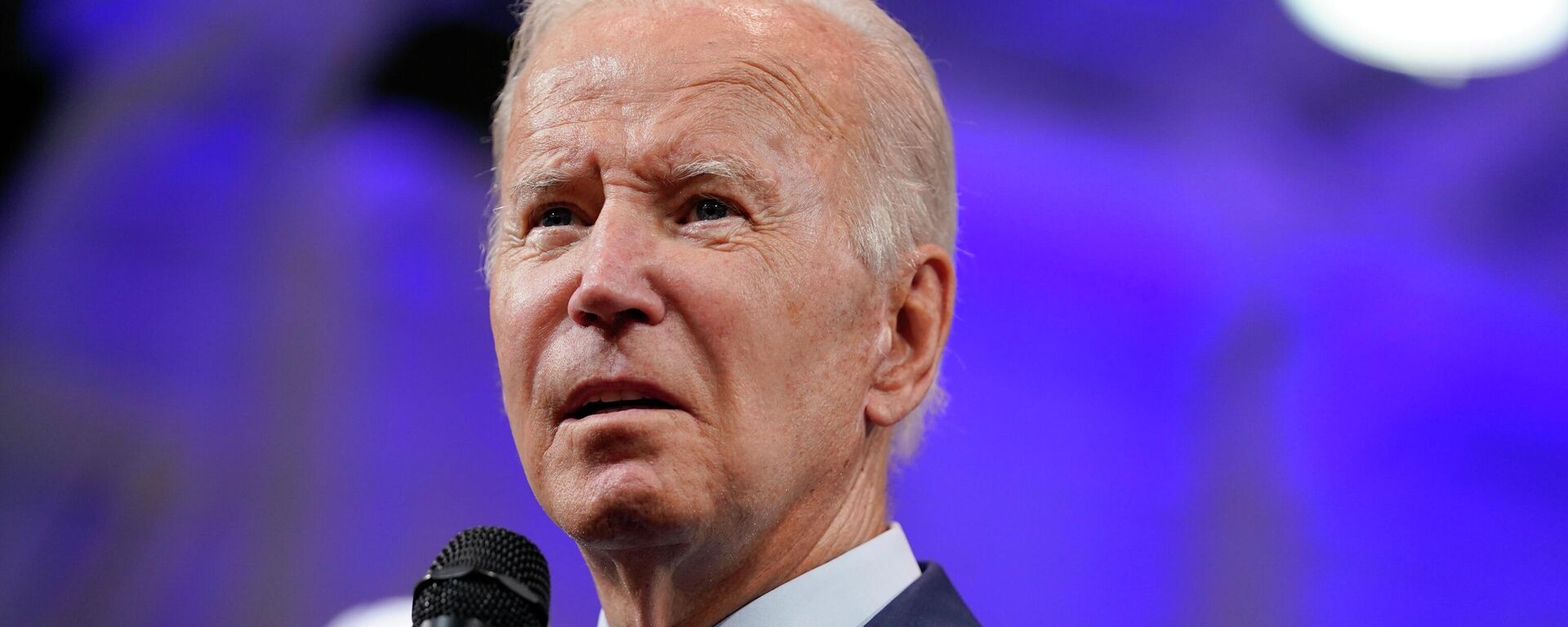
31 August 2022, 02:06 GMT
Greatest Achievement
There are few leaders in global history who could rival Gorbachev in such “grandiose idealism,” the academic said.
As far as concrete “achievements” are concerned, Suslov pointed to Gorbachev’s central role in securing a peaceful end to the Cold War, and reducing global stocks of nuclear weapons. It was Gorbachev, he recalled, who initiated talks on the elimination of ground-based nuclear missiles in the 500-5,500 km range via the Intermediate-Range Nuclear Forces (INF) Treaty. That treaty lasted 31 years before the US unilaterally scrapped it in 2019.
Gorbachev was also the initiator of the first Strategic Arms Reduction Treaty between the USSR (and then Russia) and the US, which dramatically reduced the two countries’ nuclear warhead arsenals and paved the way for START-2 and START-3, Suslov noted.
The normalization of Moscow’s ties with Beijing after a bitter, decades-long dispute between the communist powers is also Gorbachev’s doing, according to Suslov. “A lot of people forget that it was Gorbachev who took Moscow’s relations with the People’s Republic of China out of the hostile state they were in in the 1960s and 1970s, which even saw a conflict on Damansky Island, etc.”
Wu Fei, a professor at the School of Journalism and Communication at Jinan University, agreed that Gorbachev played an important role in improving relations, but emphasized that the politician has a mixed legacy for China, given his “betrayal” of the cause of socialism and responsibility for the USSR’s collapse.
“At the end of the 1970s, the USSR’s diplomatic community really did seek peace talks with China, but this idea was rejected by the Soviet Communist Party’s leadership. After Gorbachev took office, he decided to restore ties with China and played an active role in promoting peaceful exchanges,” Wu said.
Ultimately, the professor believes that the “mistakes” made by Gorbachev in the late 1980s and early 1990s continue to bear their poisonous fruit today, “including in terms of the historical legacy which he left in relations between Russia and Ukraine.”
Biggest Mistake
Gorbachev’s biggest mistake in foreign policy was to place too much trust in the West, which did not see the USSR as an equal partner, but sought to defeat it, Suslov believes.
“Gorbachev proceeded from the possibility of an equal partnership and the transformation of the bipolar confrontation into a bipolar partnership, into bipolar cooperation. The West had a different view, so to speak, on the prospect of relations, and imposed its conditions,” he said.
The academic characterized Gorbachev’s handling of the matter of Germany’s unification as his single “greatest foreign policy mistake,” with this event, and specifically the lack of written guarantees from NATO not to expand east, sowing the seeds for the current geopolitical confrontation between Russia and the West in Ukraine, according to Suslov.
“Firstly, the unification of Germany created the first precedent for the expansion of the West and its absorption of the ‘non-West.’ The German Democratic Republic was absorbed into the Federal Republic of Germany. This was not the reunification of Germany, but the expansion of the FRG onto the territory of the GDR. At the same, Germany remained within the framework of NATO and the European Community. The USSR received nothing at all for this,” Suslov emphasized.
Stefan Bollinger, a German political scientist and member of the Historical Commission of the Die Linke party, said that for East Germans, Gorbachev’s legacy is undoubtedly one of betrayal.
“Egon Krenz, the last communist leader of the GDR, sought support in Moscow for an East German version of perestroika, but got only warm words in return, which turned out to be a lie amid negotiations which had already begun on the idea of ending Germany’s division,” Bollinger recalled.
“Gorbachev knew that his capitulation in the Cold War in December of 1989 at Malta would have consequences. He abandoned the USSR’s allies, allied parties, socialist ideas, making one concession after another. Today, these are the ‘merits’ attributed to him in the obituaries of bourgeois parties from Berlin to London to Washington – in the context of the victorious market world order under US domination,” Bollinger said.
“In commemorating Mikhail Gorbachev's life, it should be appreciated that he was both a catalyst and consequence of his time,” said Dr. Samuel Hoff, George Washington Distinguished Professor Emeritus of History and Political Science, Delaware State University.
“He was a change-agent for certain, but one who led a nonviolent transition for which he was awarded the Nobel Peace Prize, among other accolades.”
Hoff said that Gorbachev’s administration demonstrated what the US and Russia have in common, including that he wasn’t afraid to experiment with the country's economy, he worked with American leaders to “make the world safer,” and he “demonstrated that America and Russia could be successful military allies” during Operation Desert Storm.
Gorbachev’s Downfall
Gorbachev also carried out a “large number of mistakes” on the domestic front, Suslov noted.
“Gorbachev’s inability to hold onto the reins of power and prevent the uncontrolled strengthening of centrifugal tendencies within the country, his inability to discern in time where the threat would come from and what certain leaders whom he once supported might do (I mean here Boris Yeltsin). This, of course, was Gorbachev’s biggest mistake domestically,” he said.
Serbian-American publicist and historian Srdja Trifkovic expressed less of a rose-tinted opinion on Gorbachev and his role in history, telling Sputnik that while the late politician received some highly laudatory obituaries from Western officials and media, the factual outcome of his leadership turned out to be fatal for his own country.
“Gorbachev simultaneously sought to loosen political control and to reform the economy toward market mechanisms. However, the combination of these two ‘medicines’ – glasnost [‘openness’] and perestroika [‘restructuring’] ended up killing the patient. Glasnost gave birth to nationalist and separatist movements in Estonia, Latvia and Lithuania, and later in the southern Caucasus, while perestroika led to chaos in the economy and the beginnings of the oligarchical plunder of the Soviet Union’s economic resources,” Trifkovic stressed.
“On the whole, we’re talking about a person who let the genie out of the bottle and opened Pandora’s box, and did not know how to deal with the consequences,” the historian suggested. Trifkovic believes that ultimately, history will remember Gorbachev as a leader who “perhaps, wanted the best in terms of reforming Soviet society, but who was not strong enough to cope with this task.”

